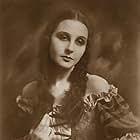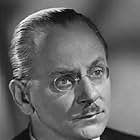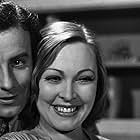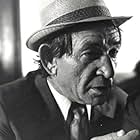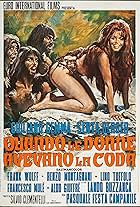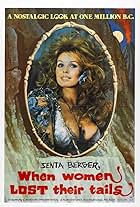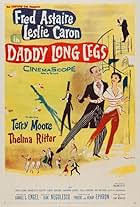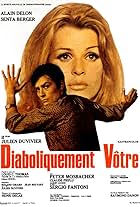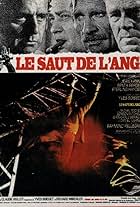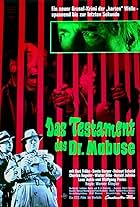This German star flick concentrates on the crazy love story between an English barrister and a young Austrian baroness who - together with her father - steals jewelry from ladies' necks by applying the "one and a half finger system" invented by her grandmother. As stars, Senta Berger and Joachim Fuchsberger fulfil their jobs well, with "Blacky" lacking some credibility due to resuming his cool Yard inspector image from Rialto's (or respectively CCC's) Edgar Wallace series. Senta hands in some of her usual full-force sex appeal and a wilful "I know what I want" attitude when she makes her way to London to see her darling Robert (Fuchsberger). Authored by writer team Keindorff/Sibelius as a later one of their 38 contributions to German post-war film history, together with a "Peter Lambda", the story has Senta's father (reliable as ever: Martin Held) trying to prevent her from turning away from their successful family business. The plot is interesting and somewhat new but laughs are few. It sets off in the fashionable oriental setting of a Caesarea hotel and goes on in Vienna and London, though practically reduced to indoor scenes. A nicer bit has Robert addressing the jury when Senta Berger stands accused but his lengthy plédoyer for love, altogether, fails to click. Some nice humour comes from real-life couple Irene Meyendorff and James Robertson Justice (appropriately dubbed by Erik Jelde) as Robert's parents, although treating large-scale arms trade as a funny vocation seems more than awkward nowadays. CCC owner Artur Brauner assembled his successful "Edgar Wallace" team alongside director Vohrer: Karl Löb's colour photography is fine while Martin Böttcher couldn't keep from presenting a soundtrack of the fickle type once again. Some of the film's effectiveness is owed to Miss Berger's costumes (and Blacky's suits). Supporting players include some well-known faces in shorter appearances such as Schoenfelder's and Schündler's. (And, er, yes, that's a mute Wolfgang Völz standing behind Fuchsberger at the police station.) The likeable rôles of Sammy and Sarah (in something that could have been a Shakespearean sub-plot) make you wonder why Walter Wilz and Helga Sommerfeld disappeared from the screen in the late sixties.
















